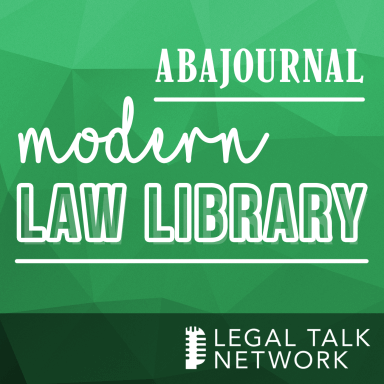Lee Rawles joined the ABA Journal in 2010 as a web producer. She has also worked for...
| Published: | August 28, 2014 |
| Podcast: | ABA Journal: Modern Law Library |
Before their successful partnership on Hollingsworth v. Perry, the federal case that overturned California’s anti-same-sex-marriage law, the most prominent case Ted Olson and David Boies had been involved in together was Bush v. Gore. Olson, who argued on behalf of George W. Bush, prevailed over Al Gore, who was represented by Boies. But people who expected that the two would therefore be hostile towards each other were dead wrong.
“I think that’s an unfortunate conception that some people have, that because you’re on opposite sides of a case, you must dislike or disrespect your opponent, or treat the opponent that’s against you in the courtroom with anything less than full civility and full respect,” Olson tells the ABA Journal’s Lee Rawles.
In reality, though they occupied opposite ends of the political spectrum, Boies and Olson were good friends. The two attorneys had often talked about working on a case together.
So in 2008, when Olson was approached by a group of Californians looking to overturn Proposition 8, Boies was one of the first attorneys he thought to reach out to. In June 2013, their clients prevailed before the U.S. Supreme Court.
The newly released book Redeeming the Dream: The Case for Marriage Equality is the jointly written account by Boies and Olson of how that was accomplished.
“It was a story that we thought was important to tell,” Boies says. “We thought it was important for lawyers to understand how the case was developed and presented. But we also thought it was important for the general public to understand our plaintiffs; to understand what was at stake; to understand why we took the case; and ultimately, how the case was won.”
Several major LGBT advocacy organizations opposed the legal strategy Boies and Olson decided to take. Boies is quick to acknowledge that opponents of taking the case to the federal courts had their reasons. “Obviously, the people who opposed this, the people who had spent decades in many cases fighting for gay and lesbian rights, knew a lot more about some of these issues than Ted and I did. But we came at it from a different perspective.”
Boies outlines several practical reasons why they decided to go ahead with the litigation. But one reason was more emotional: “We were representing four plaintiffs who wanted to get married. And it’s very hard to tell a client that this is not your time. That there will come a time where you, or your descendants, will have equality, but you can’t enjoy the ability to marry the person that you love. And it’s very hard to tell an individual that, in the interest of a larger strategic judgment, they have got to wait for their constitutional rights to be vindicated.”
In this podcast, Olson and Boies go into more detail about the behind-the-scenes maneuvering that was required to build the case, and they share what’s next for them.
Redeeming the Dream: The Case for Marriage Equality by Theodore B. Olson and David Boies
Notify me when there’s a new episode!

|
ABA Journal: Modern Law Library |
ABA Journal: Modern Law Library features top legal authors and their works.